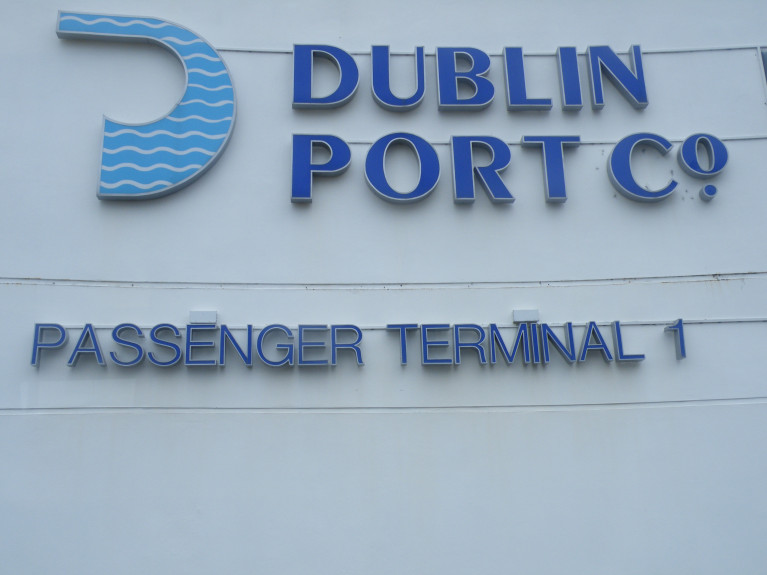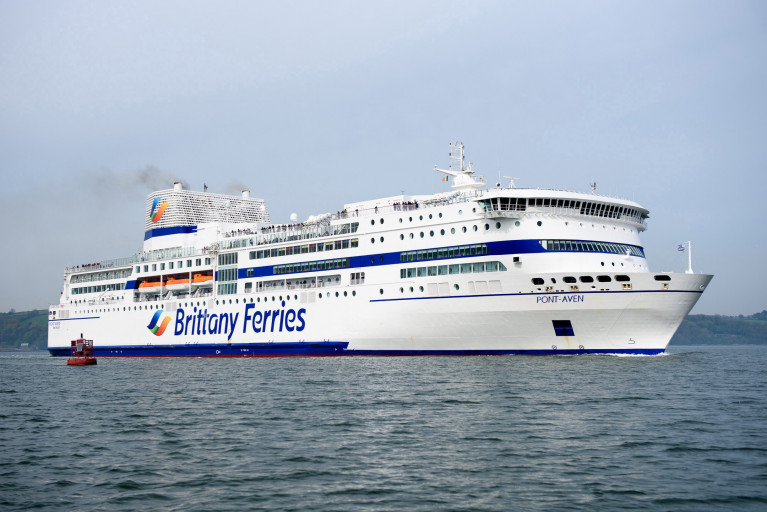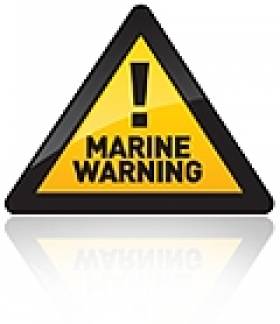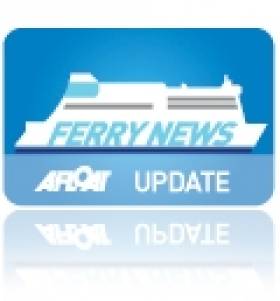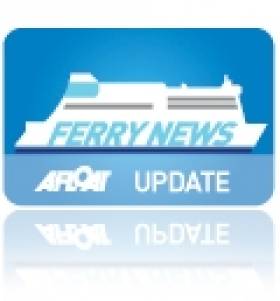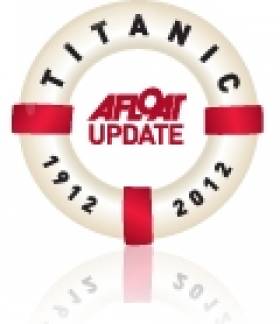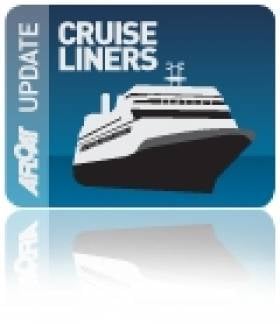Displaying items by tag: Passengers
Passengers from Britain Arriving in Ireland Advised to Take Antigen Tests for Five Days
As The Irish Times reports, passengers from Britain arriving in Ireland will be advised to undertake daily antigen tests for five consecutive days, according to a Government statement issued late on Thursday night.
The first of five tests should be completed on the day of arrival from England, Scotland or Wales and people should self-isolate immediately and seek a PCR test if they develop symptoms or have a positive antigen test.
The statement said the Government had received an updated public health assessment in relation to the Omicron variant.
A number of travel-related measures have been agreed, taking account of relevant factors including the intention to continue to align with the overall European Union approach to travel, and the particular circumstances of the Common Travel Area (CTA).
Taoiseach Micheál Martin said the travel advice is not regulatory and it will be up to individuals to comply with it for their own benefit.
Citing advice from the World Health Organisation, Mr Martin said: “We’re not going to stop Omicron, but we can try to delay it as best we can. We are saying to people to be conscious of this.”
For much more on this latest development on overseas passengers arriving in advance of the festive season, click here.
Passengers Claim Brittany Ferries is Deducting Payments for Sailings that Are ‘Impossible’
Holidaymakers of Brittany Ferries have expressed concern at the way the company is managing summer bookings.
The ferry operator says it is working on the basis that Irish holidaymakers may be in a position to travel to France as early as June – even though the Government’s phased exit from lockdown means people will be unable to travel far from their homes until the second half of July at the earliest.
One customer who has contacted The Irish Times says he was told that, unless they paid the balance in full, his family would lose a substantial deposit they had put on a sailing that they believe is extremely unlikely to go ahead because of the Covid-19 crisis. He says he was also told that, if the ferry crossing were eventually cancelled, he would then be given a credit note instead of a refund.
For more on this story click here.
Afloat adds since 1978 Brittany Ferries has operated a seasonal service on the Cork-Roscoff route.
The company earlier this year launched a new Rosslare-Bilbao service to northern Spain having abandoned Cork-Santander. The new route however 'suspended' passengers due to French Government Covid-19 restrictions.
A second new route from Rosslare Europort to Roscoff was scheduled to have begun in March but again the Covid-19 situation forced sailings not to operate on the continental Europe connection.
According to Brittany Ferries website, all sailing schedules (update today) on the Ireland-France/Spain services will as alluded above commence in June.
Marine Notice: New Seismic Survey Of Continental Shelf
#MarineNotice - The latest Marine Notice from the Department of Transport, Tourism and Sport advises mariners that ENI Ireland BV is scheduled to conduct a 2D seismic survey in the Atlantic waters of the Irish Designated Continental Shelf.
The planned start of the survey is mid-April 2013 and, weather permitting, will continue until mid-October 2013.
The proposed survey consists of 18,000km of a full-fold 2D seismic survey in offshore waters beyond the 12-nautical-mile limit, and extends into international (high seas) waters.
The seismic acquisition will be carried out by the seismic vessel M/V BGP Explorer (Call sign HP4919), which will be accompanied at all times by guard vessel M/V Alk Explorer (Call sign HO2639). In addition, M/V De Vrouw Marie (Call sign HP9974) will act as a supply vessel for the re-supply of materials.
M/V BGP Explorer will tow a single solid 10km streamer. The vessel will travel at 4–5 knots and the streamer will be located approximately 10 metres below the surface. All vessels will be listening on VHF Channel 16 throughout the project.
The notice requests all vessels, particularly those engaged in fishing, to give the M/V BGP Explorer, the M/V Alk Explorer and the supply vessel a wide berth, and keep a sharp lookout in the relevant areas.
Details of co-ordinates for the seismic survey are included in Marine Notice No 13 of 2013, a PDF of which is available to read or download HERE.
Notice of this latest seismic survey comes after the news that the European Commission has sought an explanation from the Government over why it has not conducted environmental impact assessments for such operations in Irish waters, which are a designated whale and dolphin sanctuary.
Meanwhile, another recent Marine Notice advises passenger ship operators of the requirements for vessels engaged in the tendering of passengers between ship and shore.
Full details on the relevant provisions of the Merchant Shipping Acts are included in Marine Notice No 12 of 2013 available HERE.
Marine Notices on Vessel Maintenance and Accessibility
#MarineNotice - A recent Marine Notice from the Department of Transport, Tourism and Sport (DTTAS) raises importance of maintenance as highlighted in the MCIB report into the scuttling of fishing vessel Jeanette Roberta in Glandore Harbour in late 2011.
As previously reported on Afloat.ie, the prawn boat was returning to port on 11 December 2011 when the skipper had difficulty switching the helm from auto-pilot to manual due to a known issue with "sticky solenoids". The boat subsequently veered off course without warning and was holed on rocks on Adam's Island.
The official report into the incident castigated the owner/skipper for continuing to sail the vessel with persistent navigation issues - and Marine Notice No 04 of 2013 reminds all fishing vessel operators to ensure that deficiencies with their vessels are rectified without delay.
It is the responsibility of the owner to ensure that a vessel is maintained and operated at all times in accordance with the requirements of the agreed Code of Practice. Owners of all vessels also have a legal obligation to operate their vessels in accordance with the law.
Meanwhile, the latest Marine Notice is directed at passenger vessel owners and operators - encouraging them to continue voluntary efforts to improve accessibility on their vessels.
A new questionnaire has been made available to inform the DTTAS about the extent of accessibility improvements introduced to maritime passenger transport services in the State.
Full details are included in Marine Notice No 05 of 2013, a PDF of which is available to read or download HERE.
Marine Notice: Liability of Carriers of Passengers by Sea in the Event of Accidents
#MarineNotice - The latest Marine Notice from the Department of Transport, Tourism and Sport (DTTAS) draws attention to EU regulations pertaining to the liability of carriers of passengers by sea in the event of accidents.
The new EU Regulation 392/2009 came into force last week on 31 December 2012, incorporating provisions of the 2002 protocol to the Athens Convention relating to the carriage of passengers and their luggage by sea, which introduced compulsory insurance to cover passengers on ships such as passenger ferries, and covers the liability of the carrier in respect of passengers, their luggage and vehicles.
Full details of the new regulations are available in Marine Notice No 2 of 2013 via the department website HERE.
Marine Notice: New EU Regulations for Ferry and Boat Passengers
#FERRY NEWS - The latest Marine Notice from the Department of Transport, Tourism and Sport (DTTAS) highlights the rights of ferry and boat passengers within the European Union under new legislation set to apply from 18 December 2012.
The European Union (Rights of Passengers when Travelling by Sea and Inland Waterway) Regulations 2012 give full effect to Regulation (EU) No 1177/2010, which has the objective of ensuring "a high level of protection for passengers using waterborne transport anywhere in the European Union by establishing certain rights and a minimum quality of service across the EU.
"It provides ship passengers with enhanced rights and includes provisions on non-discrimination and assistance for persons with disabilities and reduced mobility, rights relating to the provision of information to all passengers before and during a journey, assistance to passengers in the event of delays and, in certain circumstances, compensation for delays and cancellation of journeys."
The main elements of the new regulations are summarised in Marine Notice No 63 of 2012, a PDF of which is available to read or download HERE.
Meanwhile, the DTTAS is also reminding shipowners, masters and officers of their obligations as regards keeping a continuous navigational watch while at anchor.
Full details of obligations under the STCW Convention are included in Marine Notice No 62 of 2012, a PDF of which is available to read or download HERE.
The 13 Deadliest Shipwrecks in History
#TITANIC - Irreverent tech website Gizmodo has marked the 100th annversary of the sinking of the Titanic with a list of the 13 deadliest shipwrecks in history.
The list runs the gamut from well over a century ago, in the early days of passenger shipping - see the SS Sultana, a tragedy overshadowed by the assassination of Abraham Lincoln and the end of the American Civl War - to more recent events.
Included are such as sad tales as that of the Empress of Ireland, the worst disaster in Canadian maritime history in which more than 1,000 died, and much closer to home the Lusitania, which went down off Kinsale in May 1915 after a torpedo attack.
But the worst was arguably suffered by the passengers of the steamship SS Kiangya - which blew up 50 miles north of Shanghai in December 1948, taking as many as 3,920 lives - and the horror that befell the MV Doña Paz in the Philippines in December 1987, where estimates put the death toll at an unbelievable 4,000.
Gizmodo has more on the story HERE.
#MCIB - The families of two fishermen found dead at sea off the Skerries last April may never uncover the circumstances that led to their demise. But the official report into the incident indicated that the absence of lifejackets was a significant contributing factor.
Ronan Browne (26) and David Gilsenan (41) were reported missing on the evening of 1 April after failing to return from a trip tending to lobster pots.
Their vessel, Lady Linda, was found the following morning upturned in an oil slick off Clogherhead with no sign of the crew.
It wasn't until a week later that their bodies were discovered caught in the vessel's fishing gear some five miles east of Clogherhead, as previously reported on Afloat.ie.
Post-mortem results found that both men died from drowning, with Gilsenan also showing signs of hypothermia.
With no eyewitnesses to the incident, the report by the Marine Casualty Investigation Board (MCIB) indicated a number of possible causes from eqiupment malfunction or shifting of lobster pots on deck, to the wave height and weather conditions on the day, which were reportedly deteriorating when the boat left port.
It also said that Browne and Gilsenan "were lifelong friends, both men were experienced and qualified marine engineers in the fishing vessel industry. Both men were experienced in boat handling and fishing and had worked together on many occasions."
But the report emphasised the lack of personal flotation devices (PFDs) on board, and noted that emergency equipment was stored under the deck and not easily accessible.
The MCIB's recommendations include a review of the code of practice for fishing vessels under 15m to establish "revised stability critera" and ensuring that all boats are fitted with automatic radio beacons that deploy upon capsize.
In a separate incident, lack of proper maintenance led to an unlicenced boat taking on water off Co Kerry last August.
The Claire Buoyant was carrying one crew, five passengers and 21 sheep from Beginish Island to Ventry when the vessel began to lose stability.
Skipper Eoin Firtear - who the MCIB described as having "limited sea-going experience" - and his five passengers were rescued by passenger ferry. All sheep were jettisoned overboard, with 18 eventually recovered.
The report reminded that the carriage of livestock should only be undertaken in appropriately certified vessels.
- MCIB
- Marine Casualty Investigation Board
- report
- Lady Linda
- Clogherhead
- Ronan Browne
- David Gilsenan
- lobster pots
- Fishing
- drowning
- hypothermia
- missing
- malfunction
- wave height
- Weather
- lifejackets
- Personal Flotation Devices
- PFDs
- Code of Practice
- stability
- Radio
- beacon
- maintenance
- unlicenced
- Co Kerry
- Claire Buoyant
- Sheep
- Passengers
- Beginish Island
- Ventry
- Eoin Firtear
- Skipper
- Rescue
- Livestock
Cruise Lines Mandate Pre-Departure Safety Briefing for Passengers
#CRUISE LINERS - Cruise ship passengers will be given a safety briefing before leaving port under new industry rules drawn up in the wake of the Costa Concordia incident, The Guardian reports.
Three organisations representing international cruise lines have agreed that the 'muster drill' - which is currently conducted within 24 hours of setting sail as per maritime law - must now be held before departure from any port.
The move comes after reports that hundreds of passengers who had boarded the stricken vessel hours before it ran aground off the western Italian coast had not yet had any kind of safety instruction.
Muster drills, whereby passengers are shown how to put on lifejackets and directed to exits, are already common practice in the industry.
As previously reported on Afloat.ie, an Irish couple were among thousands rescued from the Costa Concordia after the incident on Friday 13 January. At least 32 people are believed to have died in the disaster, with 15 recorded passengers still missing.
The Guardian has more on the story HERE.
Irish Couple Speak of 'Titanic' Experience on Capsized Cruise Liner
#NEWS UPDATE - The Irish couple rescued from the stricken cruise liner off the Italian coast have spoken of their joy to be back home safe and sound.
Séamus Moore (52) and his wife Carol (50) from Clonmel were greeted by their three children at Dublin Airport yesterday, just two days after the Costa Concordia struck a sandbank and capsized off Tuscany.
“It was a difficult experience but at the end of the day it worked out very well for most people," Carol told The Irish Times. "It’s really, really a relief to be home.”
Commenting on the events of Friday night, Séamus likened their experiences on the sinking cruise ship to the film Titanic.
“When we were sitting on the side of the ship I said to her ‘now we know what Leonardo DiCaprio and Kate Winslett felt like’ and she said ‘well at least Kate lived’."
As the boat listed, it also struck Séamus that while "everything was crashing one way, then the next, the one thing I did notice is that the piano player kept playing."
The couple were removed from the ship by lifeboat in the early hours of Saturday and looked after by the staff at the Irish Embassy in Rome before their return.
They were among some 4,000 passengers on the cruise ship, most of whom were rescued within hours of the incident. Six people are confirmed dead following the disaster, with more than 60 injured and 16 people still missing.
The captain of the 114,500-tonne vessel was arrested on Saturday accused of manslaughter and of abandoning ship before all passengers and crew had been evaculated.
The Irish Times has more on the story HERE.



























